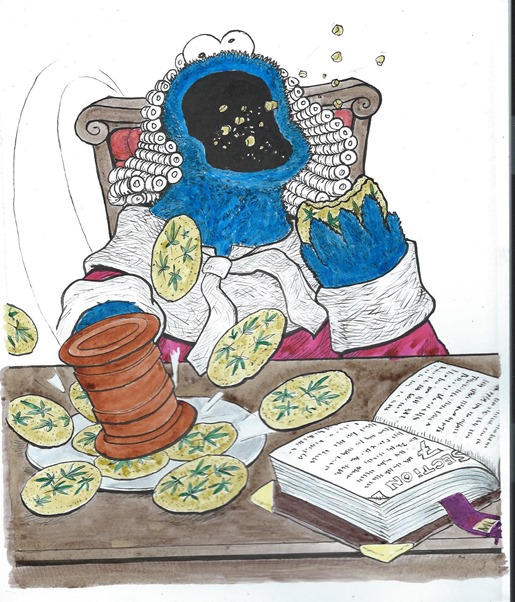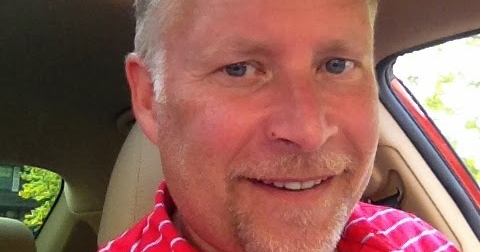Decision Should Radically Change How Cannabis Is Used As Medicine In Canada
”Would you confine your points to things that really matter!”
This was the last thing Chief Justice Beverley McLachlin said to crown lawyer Paul Riley before Riley quickly closed his arguments. It was an appropriate ending to a special morning in the Supreme Court of Canada. Health Canada had failed to defend limiting patients to ‘dried marijuana,’ and everyone in the room knew it.
The decision is expected in late June or Aug.
Going into the hearing, defense attorney Kirk Tousaw was confident in his arguments. He was surrounded by a solid team of lawyers advising him, including veteran attorney John Conroy and his team working on the injunction granted by the federal court that has allowed patients to continue to growing their medicine. Counting all the lawyers representing intervenors, Owen Smith had 11 attorneys on his side; the federal government had two.
No one could have predicted how poorly crown lawyer Paul Riley would come across. His arguments were unconvincing, something very obvious when after a few questions Justice Cromwell politely told him that he was not able even to follow his line of reasoning, let alone agree with him. It was surprising to see Riley arguing the case at the SCC after losing before the BC Court of Appeal. But perhaps no other lawyer working for the government was willing to take this case.
For those in attendance, the energy in the air was electric.
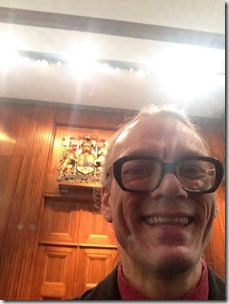
Sparks began to fly when the judges grilled the crown. Riley stated the government did not believe citizens should have the right to choose an illegal substance over a legal one, citing the options of dried marijuana and legal prescription drugs containing tetrahydrocannabinol, THC, the most active chemical in the cannabis plant.
“What Health Canada is saying is: leave aside anecdotal opinions of individuals. What science has been done has been done with respect to dried marijuana. That is the known quantity. We do not know the implications and effects and utility of derivative products, which are in effect more more concentrated, like THC and cannabis resin….We do not know those things so we are not going to regulate them because to do that would be to go against the general principles of the regulations.”
This position of the crown totally ignores the undisputed evidence of Dr David Pate, who testified for the defense, and Dr Abramovic, the expert sent by Health Canada who confirmed much of what Dr Pate said. The document that Dr Abramovic updated for Health Canada is full of references to studies of edible cannabis and THC. In fact, Owen was charged with possession of THC for the purposes of trafficking, and THC has actually passed through the drug approval process as a synthetic drug drug as Marinol and a plant-derived drug in Sativex.
The judges did not seem to believe the crown had a good argument for keeping cannabis derivatives illegal. When Riley began to say the court and police had to use common sense in determining whether the laws were being broken, rather than going strictly by the letter of the law, the judges did not seem convinced.
“We have a criminal prohibition, and you are telling us that the line-drawing is very difficult.” The Chief Justice clearly saw that this loose method of interpreting the law put patients at risk. “That seems to me constitutionally problematic.”
“The difficulty that I am having with this is that it is a criminal model and you keep talking about it being a regulatory model, … but we are talking about criminal law here and exceptions to criminal law.” Chief Justice McLachlin was very clear that the laws were a threat to the security of the person, which is supposed to be protected by the Charter. “Certainly it is a way of regulating but it is regulating with the heaviest instrument the law can apply. Now when you do that you come into Section 7 territory.”
Likewise, the court did not seem ready to listen much to why the crown did not think Owen could argue that patients are at risk of their rights being violated by these laws. One of the dissenting judges at the BC Court of Appeal made this argument, though it goes against every Supreme Court of Canada decision made in this area of law, often referred to as the matter of standing. As Kirk and some of the intervenors pointed out, the high court has given corporations the ability to use the principle of standing to argue that the rights of their customers are being violated. Since corporations can be granted standing, there should be no question that a citizen can be granted standing as well.
Canada’s highest court has consistently stated that no one should be convicted of an unconstitutional law, and this case should be no different.
Riley was struggling to answer the questions of the judges throughout much of his presentation. When asked questions he rarely answered directly. Instead he tried to divert the judges’ attention to other related points of law in an attempt to avoid the question outright. At times he seemed desperate, constantly coming back to the point that drugs should not be made available until they have been fully tested, as if that was justification for throwing patients to the wolves if they made an extract for themselves.
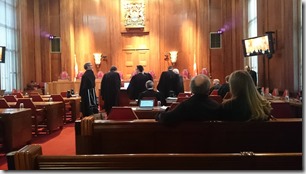
Several times during the crown`s presentation the judges appeared amused and even sarcastic about the government’s arguments and Riley’s approach. Early in his one hour, Chief Justice McLachlin bluntly says, “Well those are a lot of lawyer words but…”
The crown spent so much time trying to prove Owen should not have standing, and that common sense should protect patients from the law when they are in the process of making and using cannabis derivatives, that he only had 3 minutes to discuss the remedy. Of course, the government wants time to make any necessary changes to the regulations. They claim there are many stakeholders to consult when making these new regulations.
How much work the government has will depend upon the remedy the courts prescribe. Normally the courts do not like to meddle in government regulations, but this situation may force them to do just that. The lower court decisions were problematic, so there is no clear road for the court to take.
“If we win, the remedy I argued for is to remove medical cannabis entirely from the Controlled Drugs and Substances Act (CDSA).`, states Kirk Tousaw. “This would mean that cannabis for medical purposes would have no restrictions when in the hands of patients. In other words, patients can possess it, produce it for themselves, and make any derivative medicines they want to for their own use.”
This remedy would solve many of the government’s regulatory problems because as long as cannabis is a controlled substance there are many limitations on how it can be used, and it will always be hard to enforce the laws when a growing number of people are allowed to possess, produce and use cannabis products as medicine. Since there is no chance cannabis will pass the normal drug approval process, this option makes the most sense, but it is likely too bold for the court.
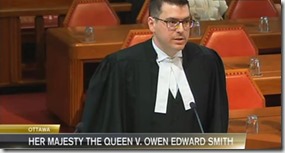
Tousaw continues, “Commercial behaviour – producing and selling cannabis and derivative medicines – would automatically become regulated by the Natural Health Product Regulations. This is by operation of law, not by our request. The NHPR apply to all plants (and derivatives from plants) that are grown and/or marketed for medical purposes. The reason cannabis isn’t already under those regulations is because the NHPR specifically exempt anything that is in the CDSA from being considered a Natural Health Product. Therefore, if the Supreme Court removes medical cannabis from the CDSA, it is automatically considered an NHP.”
If the court does this, the changes would be dramatic. The evidence before the courts strongly suggested cannabis would never become an approved drug. Certainly as long as it remains in the CDSA and any testing will be tightly regulated, if it is allowed at all. Trying to make cannabis derivatives fit into the drug approval process is like shoving a square peg into a round hole. It will not work. However, it is not the job of the court to write acceptable laws, they just make rulings on the ones before them.
One of the twists in this case is the fact the when Owen was arrested the regime in place was called the Marijuana Medical Access Regulations, and just last year Health Canada created a new program, the Marijuana for Medical Purposes Regulations. The new program created a new medical cannabis industry by granting authorization to Licensed Producers to grow and supply dried plant material to patients via mail order. Many have speculated that the government will try to ignore any decision in this case because it started when the old MMAR regulations were in place.
In the end, crown prosecutor Paul Riley knew Health Canada had lost. It was subtle, but speaking off his written script he says, “I appreciate the court will be saying the restriction in the old regime is invalid.”

He goes on to admit, “There is no question though in terms of the rule of law, everyone will take guidance from what this court says about the restriction…With regards to the new regime, since it envelops and adopts that new provision, even though it is not subject to challenge, the government would have to obviously look at responding to the ruling, to make sure that the…regulations correspond to the ruling.”
In fact there appear to be a number of things happening as the industry prepares for the next phase. Multi-million dollar investments are being made by LPs looking to cash in on the multi-billion dollar market that is going to be created with these changes. Reports started coming within hours of the end of the hearing suggesting Health Canada was even preparing to fast-track the regulations, though it is expected the courts will give them a year.
There is a great deal of pressure on Health Canada to make these changes sooner than later, and the government may even find many of its stakeholders impatient and demanding these changes happen quickly. Police will not be happy when this decision comes down, as it could make prosecuting any cannabis derivative charge impossible until the regulations are amended accordingly. Doctors will be demanding clarification as soon as possible, since their biggest complaint has been smoking. Patients are literally dying without making extracts and the public is increasingly aware of the absurd position these regulations put them in.
Left out of the stakeholders’ group, in one of the many ironies of this case, will be the Victoria Cannabis Buyers Club or any dispensary like it. Medical compassion clubs, like the one paying for this case, have never been a part of Health Canada’s programs, and it will likely take several more court cases or a complete change in government before they can play a legitimate role. However, this case has helped convince the public that the government’s medical cannabis programs are ineffective, and there has been an explosion of new dispensaries in BC that have used this case to protect them from police action.
Meanwhile, the case has cost the VCBC around $140,000 in lawyer fees and other expenses. Though the club tried to cover all of the costs of the case, as it worked its way to the Supreme Court of Canada we began to ask for some outside help. A GoFundMe page was started, and that has raised almost $8,000 by print time. In addition, a bong was donated by RedBeard that auctioned off to Rob Waddell of Planetary Pride for $3,000, the Canadian Contrate Open has donated $3,700 with more to come. Others have generously contributed to help pay for this extraordinary trial. We really appreciate all of the help, as we feel it is unfair for the members of the VCBC to bear the entire cost of this historic trial.
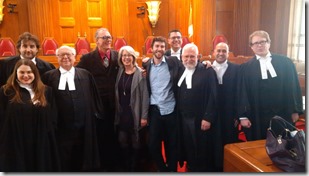
Working with Owen on this case has been an absolute pleasure. Since he was arrested, he has acted with dignity and honor. He has followed my lead, never questioning the decisions Kirk and I made, only asking clarification so he can understand what we are doing. Owen has become a gentle hero to many.
The man of the hour, though, is truly Kirk Tousaw. From his written factum, to his articulate statements in court, Kirk has demonstrated his superior intellect and his dedication to the liberation of cannabis.
Having a front row seat in this historic trial has been a privilege. Surreal, too.
For more information about the trial, check out the Cannabis Digest website. The entire hearing is also available, so you can watch the crown stutter over and over again.
Ultimately, this trial will change the course of Canadian history and its cannabis culture in ways we cannot predict. This will be the first time the highest court makes a ruling on medical cannabis, and with a growing awareness about the follies of prohibition and the incredible benefits of this plant, our society is ready for a fundamental shift in these policies. We have struck at the Achilles Heel of Health Canada, and now we shall see its medical cannabis program fall to its knees.

